- Home
- Tim Lebbon
Dusk Page 24
Dusk Read online
Page 24
He could only follow, but the nervousness that had informed Trey’s thoughts since Alishia had found him on the hillside pressed in stronger than ever. Given a target, it flowered into something greater.
He shrugged off his shoulder bag, grabbed a thumb of fledge and began to chew as he followed Alishia toward the light.
Chapter 17
THEY STOPPED RUNNING several miles beyond Pavisse. The fear was still with Rafe—the image of that demon coming at him, spitting blood, empty eye sockets seeing far more than they should, smelling the taint of something that even Rafe was still barely admitting to—but his body was failing. He could not run forever, however terrified he was. His legs were cramping, he had a stitch in his side that almost bent him double and Hope the witch had finally stopped trying to drag him. Now even she was struggling.
“There,” she said, pointing. At the foot of a gentle slope sat a huddle of buildings, smoke rising lazily from a fire before being caught and blown away by the northerly breeze. “We’ll get some horses.”
“A farm won’t just give us horses,” Rafe gasped. He was bent over, hands on his knees, legs shaking and threatening to spill him to the ground. For the hundredth time he looked behind them, fearing a flash of red in the distance.
“I’ll buy them,” she said. “Farm folk are always open to secrets.”
The farm was small, suffering as much as any from poor yield by the land. Its outbuildings were in disrepair, one of them leaning over so much that its timber columns had snapped, little more than habit preventing it from tumbling to the ground. There were several other open sheds and barns, all of them bleached by the sun and none of them full. Produce must be rare, such were the denuded stocks. From inside one of the smaller buildings came screeches and screams, rats fighting over some unfortunate victim. The farmhouse itself, a long, low, single-story affair, was adorned with animal heads in varying states of decomposition. Most of them were old, little more than bare skulls hanging on to shreds of leathery skin. But one or two were relatively new, blood dried but still evident in trails down the wall, eyes glassy where they had not been pecked out by birds. It was an old practice, displaying the heads of slaughtered predators, but it showed that life on this farm was not easy. There were at least forty heads nailed to the wall beneath the eaves: giant rats; the slab-shaped head of a ground snake; a sabre-toothed dog, its teeth painted bright red; and other creatures, some of which Rafe did not even recognize.
A herd of cows lumbered around a field nearby, chewing at grass that would eventually poison them, udders hanging slack and dry. One of them was mothering a calf, but it was a weak, diseased-looking thing, its red coat faded almost to white from lack of sustenance. A few sheebok wandered across the farmyard, lapping water from a small pond. They bleated and butted one another with shorn horns.
The farm wolf watched them walk in across the fields, eyes glittering and pelt rich and full. Some were eating well, at least. It remained stationary until Rafe and Hope passed the first of the outbuildings, and then it let out a short, loud bark.
From their left came the sound of something heavy stamping and shifting in an enclosed barn. Hope glanced at Rafe and nodded. “Horses,” she said.
Rafe felt strangely at home. Trengborne had been a whole farming community, a hundred times larger than this place and far more advanced, and yet the smells and sights and sounds were the same: sheebok dung; a rack of tools in the farmyard; the background grunts and grumble of farm animals eating and drinking and sleeping. On closer inspection he saw that the sheebok all had eye-rot, and he wanted to find a redspit plant to shred and put in their water. But he guessed that the farmer knew his work, however bad a state his herds were in. Rafe’s interference would not be appreciated.
Rafe heard a harsh whisper from out of sight. Running footsteps echoed behind one of the buildings. From behind the house more frantic whispers, the metallic sound of weapons clinking together, a hissed curse.
“Stand still, boy,” Hope said when they reached the center of the yard. The wolf stood by the door to the farmhouse, watching them, bushy tail high. “They’ll likely challenge us, but let me do the talking.”
“But I’m a farmer, I’ll know—”
“You’re from a village, not a farm like this. These people will be used to fighting off bandits and tumblers, not sitting around nursing furbats.”
Rafe felt slighted but he did as Hope said, standing still, arms held out from his sides to show that he was hiding no weapons.
The call came from their left.
“Who are you? What do you want?” The woman stepped out from behind the farmhouse, and as she strode into the yard the wolf stepped along by her side.
“My name’s Hope, and I want to buy two horses from you. This here is Rafe.”
“You’re a witch.” The woman had stopped a few paces from them, staring mostly at Hope and the tattoos illustrating her skin.
“Yes, a witch. I’ve got some trades I’d like to offer, if you’ve a mind.”
Rafe looked the woman over. She was quite young, not much older than him, but she had evidently had a hard life. Every second of it was etched into her face. There were scars across her chin and throat from some old accident or attack, and her eyes held no fear, only defiance.
“We have only three horses, so why should we give you two?”
“Because of what I can offer,” Hope said. She went to slip the bag from her shoulder and a man stepped from behind a shed to their right, leveling an over-and-under crossbow at them. He could kill them both within a heartbeat.
“I want no fight with you,” Hope said quietly.
“Looks like you’ve had enough of fighting for a while,” the man said, but the aim of his crossbow never wavered. Rafe could not tell whether he was tired or scared or bored.
“We’re running from a fight, if that’s what you mean. Forgive my appearance; I usually make more of an effort if I’m to meet new people.”
“Your hair’s a mess,” the woman said, and Rafe was sure he saw a blink of humor in her eyes.
“I lost my comb,” Hope said. The woman smiled.
“Running from a fight, eh?” the man asked. “Maybe you’re not much to fear, then.”
“No, we’re not,” Hope said.
“Do you bring the fight to us?” another woman asked, appearing from inside the farmhouse. She held a longbow, arrow strung and ready to loose. She was much older than the first woman—her mother?—and even from this distance Rafe could see that something terrible had happened to her; her face was a mass of pale scar tissue, knotted and badly healed.
“Not if we can make a deal good and quick,” the witch said. “Then we’ll be on our way.”
“What if we can’t make a deal?” the younger woman said, glancing at Rafe for the first time. He realized that she was much more frightened than she was willing to show.
“Then we will still be on our way,” Hope said. “Though we’d appreciate some food and water. We have a long way to go.”
“Are you being pursued?” the man asked.
“I don’t know.”
He stared at them along the length of his crossbow, eyes flickering from Hope to Rafe, back again. “I believe you,” he said. “So, this is how it happens. The boy comes to me. Witch, you deal with Josie. And when we’re all finished, everything goes back to normal.”
“That’s fine,” Hope said. Rafe stared at her—they want me as their guarantee!—but she merely looked at him and nodded. Rafe turned to the farmer, tried to meet his eyes and see the intent there, but he was inscrutable.
There was a sudden rush of sound in Rafe’s head, so loud and clear that he looked around to see where it came from. He knew straightaway that it was personal to him—none of the others in that farmyard were aware of it—and he knew what it was. When he looked down at his feet the land spoke to him. The voices and smells and sensations calmed him, like his mother’s bedtime soothing when he was having a nightmare or his father’
s hand on his shoulder as they harvested another diseased crop, telling him things were all right. And although he still did not know the language, he knew the tones well enough.
He looked up at the farmer and smiled, and as he walked toward the man who aimed a crossbow at his face, Rafe wondered if this was the first real dreg of magic. I’ve been told that things are fine, he thought. I’m being looked after.
“Stop there, turn around, kneel down,” the farmer said, not unkindly. “Don’t move, boy, and everything will be fine. I’ve no wish to hurt either of you. I do wonder what you’re doing with a witch, though.”
Rafe did as the farmer instructed. “She’s looking after me,” he said. “My parents are dead.” He felt the cool kiss of metal on the back of his neck.
“Sorry to hear that, boy.” The farmer fell quiet, watching the trade between Hope and Josie.
Hope opened her shoulder bag slowly and pulled out a jar, a wallet of some unidentifiable material and a small book. “I want two horses,” she said. “I know how precious these animals are to you, but right now they’re worth more to us. As such, not only will I pay you enough tellans for you to ride into Pavisse and buy two more horses as soon as the mood takes you, I’ll also recompense you with a trade. One of these three could be yours, over and above the going rate, which is . . . ?”
“A thousand,” Josie said quickly.
Hope smiled. “Seems fair.” She pointed at the jar. “Heart of skull raven. It never corrupts. It drains bad dreams, sucks up nightmares, gives you easy sleep—”
“Don’t taunt us with fake magic, witch!” Josie hissed. Rafe stiffened, felt the farmer stretch forward and press the sharp bolt into the base of his skull.
“I don’t taunt you at all,” Hope said. “I know there’s no magic, and I don’t pretend otherwise. Where’s the use in that? The skull raven’s heart isn’t magic, it’s a resource, just like your crops or your sheebok. And what it does is a process. Just as you plant your seeds and water them and watch them grow, so this incorruptible thing will shrink your nightmares. Application to your head while you sleep, that’s all it takes. Don’t ask me how, I simply know that it works. That’s what the name witch implies: not magic, but knowledge. Few people alive know the things I know, and that makes me a good witch.”
Josie stared at Hope, glanced down at the three items set on the ground between them. Though she was trying to exude distrust, Rafe could sense the hope within her. The hope that this trade would work, and that her struggling family would come out with something precious and worthwhile.
“What about this?”
Hope picked up the strange wallet, tattoos pulling her face into awe. “This is something I’ve never opened. I don’t know what’s in it. I’m scared to open it, because it once belonged to a Sleeping God. This wallet has not been unraveled since before magic fled this land, and its owner is still alive somewhere, awaiting magic’s return. There could be anything in here. Anything.”
Josie stared at the wallet for a few seconds, and then glanced quickly toward Rafe and the man standing behind him.
“Ah, but this,” Hope said, pointing at the book. “This is surely what you need. In here—”
“This really belonged to a Sleeping God?” Josie asked, pointing at the wallet.
Hope paused, then nodded. “Yes. Although I’m sure they’re not really gods. And for all I know it could be empty.”
Josie stared in awe at the wallet as Hope picked up the book. Rafe already knew what the witch would be giving away, and he thought she did too. Nevertheless, she opened the book and flipped its thick pages.
“This is a Book of Ways. It was written by Rosen Am Tellington, one of the great mapmakers, long before the Cataclysmic War. It charts the land of Noreela from north to south, east to west, with only a few obvious areas left blank. Back then, there was more certainty in things: a path did not change from one year to the next; mountains remained in place; swamps did not dry out and deserts did not become lakes.”
“So what’s the point in that now?” Josie asked. “The world’s changing, and magic’s gone. And we’re only farmers. Why do I need a map of New Shanti when I’ll never be within five hundred miles of it?”
“Tellington was a visionary,” Hope said. “She knew that things would change, and so she thought around things as well as through them. She mapped out hidden routes that have long vanished into myth, and which only now exist in her books. And there are few enough of them. In here you will learn of underground paths through the Widow’s Peaks, for instance, not fifty miles from here. You can read of how to get from Noreela City to Long Marrakash without passing across the ground in between.”
“Magic!” Josie scoffed.
“Some, yes, and that’s inevitable. But as I said, Tellington was a visionary, and she knew that even magic may not last forever. In here are hidden Ways. Who knows when you might need them?”
“We’ll take that,” Josie said, pointing at the Sleeping God’s wallet.
Hope sat back on her heels and frowned. “Are you sure? Don’t you have nightmares? Doesn’t the skull raven’s heart—”
“We’ll take the wallet,” Josie said. She looked up at the man behind Rafe. “We’re taking the wallet,” she said to him.
“Yes,” the man agreed.
Hope looked around at the man, Rafe, the woman with the longbow. Rafe thought for a moment that she was going to snatch up the wallet and run. Her face creased and the tattoos twisted, doubt holding her tense.
“The horses are in there,” Josie said, standing. “I’ll give you two old saddles, as a gesture of good faith. And now, we’re busy, so please leave.”
She snapped up the wallet, held out her hand for the thousand tellans, pocketed everything and walked away.
The man came around from behind Rafe and clapped his shoulder as he passed by. “Life Moon be with you,” he said quietly. “And take good care of those horses, they’ve served us well.”
Rafe stood and went to Hope. She was putting the jar and book back into her shoulder bag, staring after Josie as if judging whether she would be able to reach her, tackle her, steal back the leather wallet before an arrow or bolt found its mark.
“Hope,” Rafe said.
“Boy.” She did not turn.
“Hope, we should leave. We have horses now, we can put a good distance between us and Pavisse by nightfall.”
The witch looked at Rafe and smiled . . . and her tattoos twisted into a smirk. “True!” she said. “That’s true! Come on, let’s see how friendly our new mounts will be to a witch and a farm boy.”
A FEW MINUTES later they were riding away from the farm, listening to the farm wolf howl defiantly as they left.
“You lost something valuable, didn’t you?” Rafe said. “I’m sorry. It’s all because of me, everything that is happening—”
“I lost an old wallet that one of my clients left behind,” Hope said, and she smiled across at Rafe. He did not like that smile very much; it twisted her face so that she looked as if she were in pain. “I knew they would go for the mystery. The skull raven heart and the Book of Ways—now, they are valuable, and who knows when we may need them?”
“But when they open it?”
“They’ll find just what they wanted: an enigma. Sheets of old parchment with scrawls in a language they cannot know, because it’s of my own making. A pendant carved from a tumbler’s claw. Things they will wonder about for a long time, but never solve.”
Rafe rode silently, staring ahead.
“Boy, it’s not as if I fooled them. If that really had belonged to a Sleeping God, do you think it would have contained something that made more sense?”
“I don’t know much about them, other than people think they’re gods.”
“Foolish people.”
“But it’s their faith you’re playing with!”
“Foolish people, Rafe,” Hope repeated. “They’ll never leave that farm, they’ll never do any good. They’re not im
portant! You are, and I have to look after you. If it means I have to fool some fools, then I’ll certainly not let that disturb my sleep.”
She’s right, Rafe thought. She’s right and I know it. He rode on in silence, following Hope, letting her steer him because, in truth, he had no idea what else he could do.
THEY RODE HARD for an hour, realizing only too quickly that the horses were weak, tired and malnourished. They slowed then, letting the mounts maintain their own pace. Rafe only hoped that the Red Monks had lost their scent.
His scent. It was him they sought.
The whole land whispered behind his eyes, and he felt protected.
As the sun dipped to the west and the life and death moons appeared from the blue, Hope spotted a rage of skull ravens. She dismounted and handed Rafe her horse’s reins.
“I’ll send your friends a message,” she said. “Stay here. Stay still. And don’t be scared.”
The witch headed off across the grassland toward where the skull ravens roosted in a dead lightning-tree. She was making a noise deep in her throat, a series of clicks and snicks: a bag of stones being shaken, sticks being rattled. It set Rafe’s nerves on edge and made the horses uneasy. The skull ravens jumped down from branch to blackened branch, making their way closer to the ground. There were ten of them in total, each with a wingspan as wide as Rafe was tall, their heads large, beaks long and thin.
They were waiting for Hope to arrive.
As she neared, still clicking and making that strange sound, the birds took flight as one and flew straight at the witch. She held out her arms and lowered her head, giving them room to roost. One on each foot, three on each arm, two on her head, Hope was almost lost beneath the beating wings and ruffled feathers of the skull ravens, though she stood fast. And the birds were making a noise now, calling out in clicks and clacks similar to those that Hope had been uttering.
Rafe gasped, wanting to help yet desperate to turn and ride away as fast as he could. Don’t be scared, Hope had said. He could only assume that she knew what she was doing.

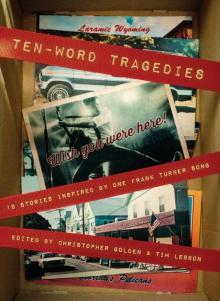 Ten-Word Tragedies
Ten-Word Tragedies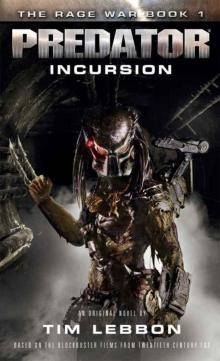 Predator: Incursion
Predator: Incursion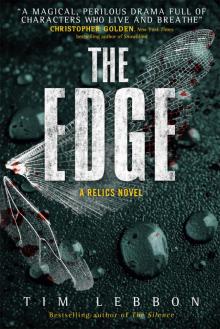 Relics--The Edge
Relics--The Edge Firefly
Firefly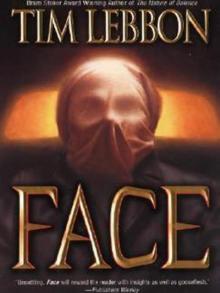 Face
Face Generations
Generations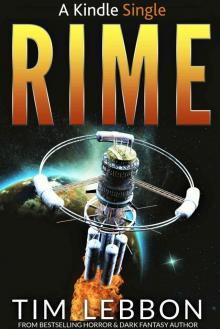 RIME (Kindle Single)
RIME (Kindle Single) Fallen
Fallen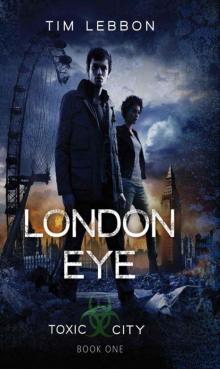 London Eye tc-1
London Eye tc-1 Kong: Skull Island
Kong: Skull Island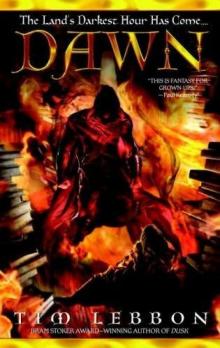 Dawn n-2
Dawn n-2 Into the Void: Star Wars (Dawn of the Jedi)
Into the Void: Star Wars (Dawn of the Jedi)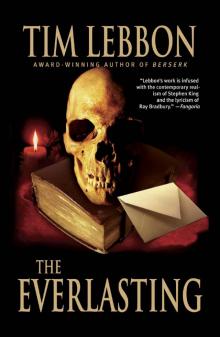 The Everlasting
The Everlasting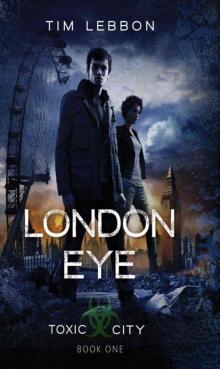 London Eye: 1 (Toxic City)
London Eye: 1 (Toxic City)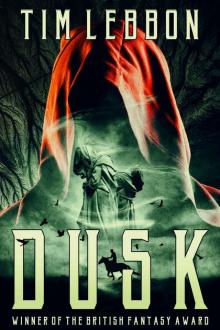 Dusk: a dark fantasy novel (A Noreela novel)
Dusk: a dark fantasy novel (A Noreela novel)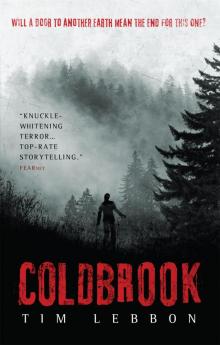 Coldbrook
Coldbrook Alien
Alien Dusk
Dusk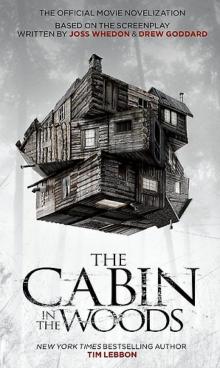 The Cabin in the Woods
The Cabin in the Woods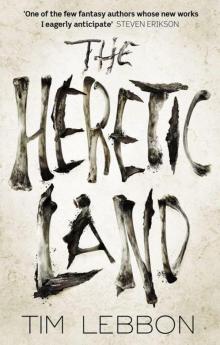 The Heretic Land
The Heretic Land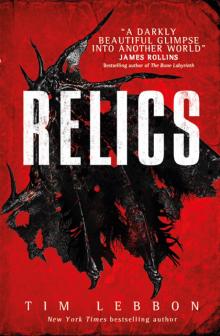 Relics
Relics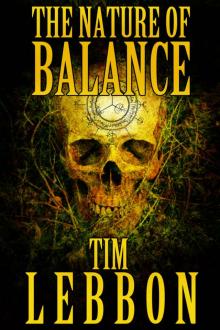 The Nature of Balance
The Nature of Balance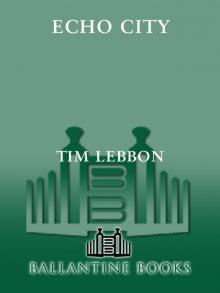 Echo City
Echo City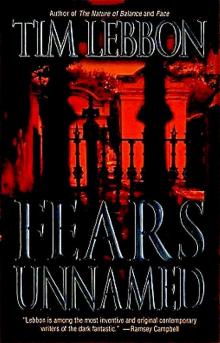 Tim Lebbon - Fears Unnamed
Tim Lebbon - Fears Unnamed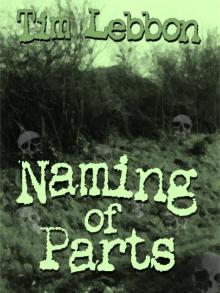 Naming of Parts
Naming of Parts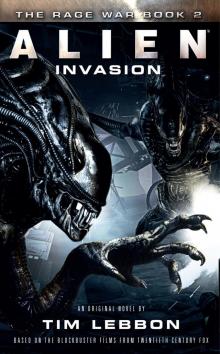 Alien--Invasion
Alien--Invasion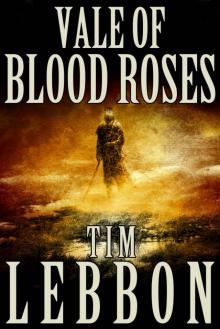 Vale of Blood Roses
Vale of Blood Roses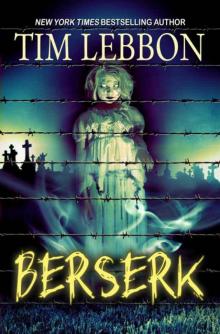 Berserk
Berserk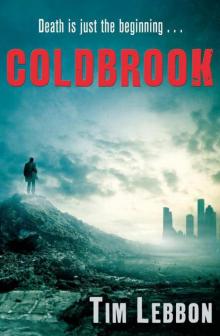 Coldbrook (Hammer)
Coldbrook (Hammer)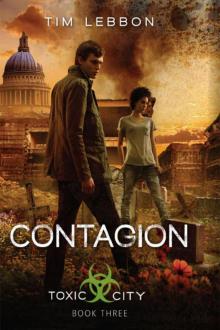 Contagion tc-3
Contagion tc-3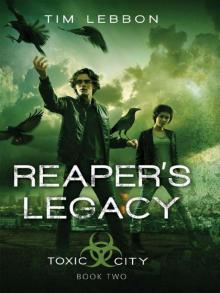 Reaper's Legacy: Book Two (Toxic City)
Reaper's Legacy: Book Two (Toxic City)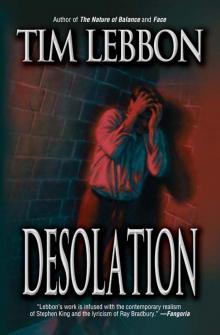 Desolation
Desolation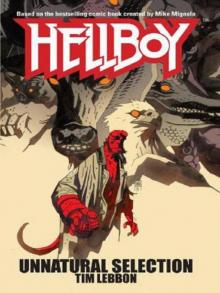 Unnatural Selection
Unnatural Selection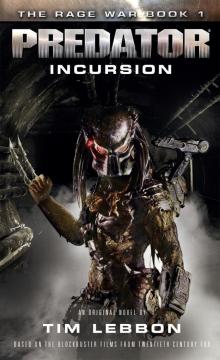 Predator - Incursion
Predator - Incursion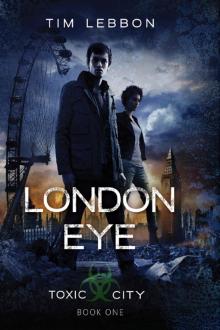 London Eye
London Eye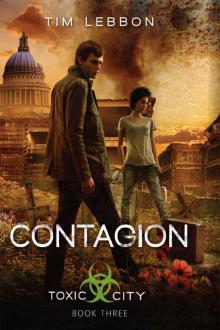 Contagion (Toxic City Book Three)
Contagion (Toxic City Book Three) The Silence
The Silence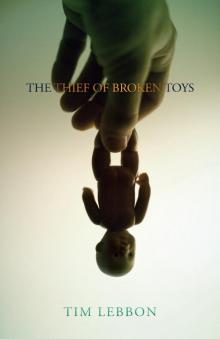 The Thief of Broken Toys
The Thief of Broken Toys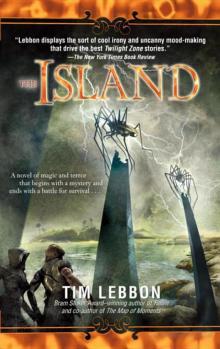 Tales of Noreela 04: The Island
Tales of Noreela 04: The Island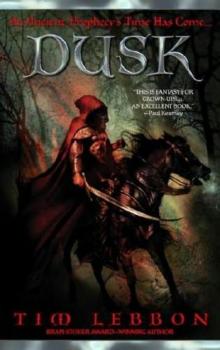 Dusk n-1
Dusk n-1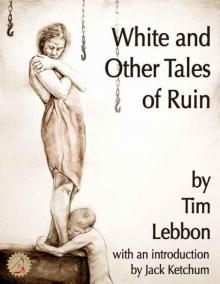 White and Other Tales of Ruin
White and Other Tales of Ruin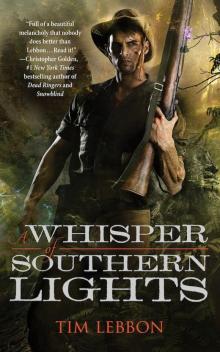 A Whisper of Southern Lights
A Whisper of Southern Lights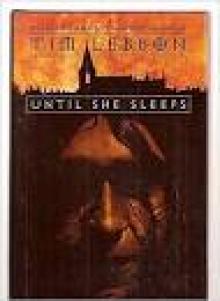 Until She Sleeps
Until She Sleeps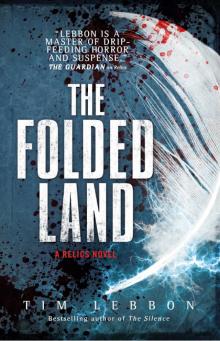 Relics--The Folded Land
Relics--The Folded Land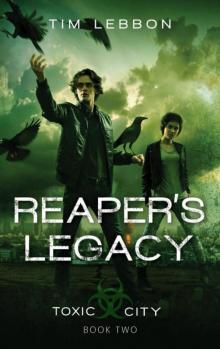 Reaper's Legacy tc-2
Reaper's Legacy tc-2 Alien: Out of the Shadows
Alien: Out of the Shadows Pieces of Hate
Pieces of Hate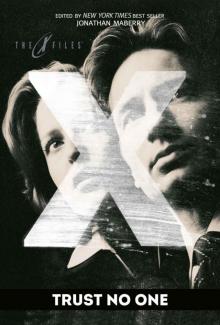 X-Files: Trust No One
X-Files: Trust No One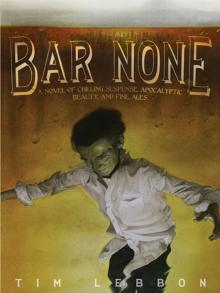 Bar None
Bar None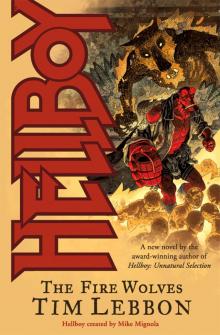 The Fire Wolves
The Fire Wolves